Health
Lack of sleep could be a factor in a 'silent epidemic,' experts warn
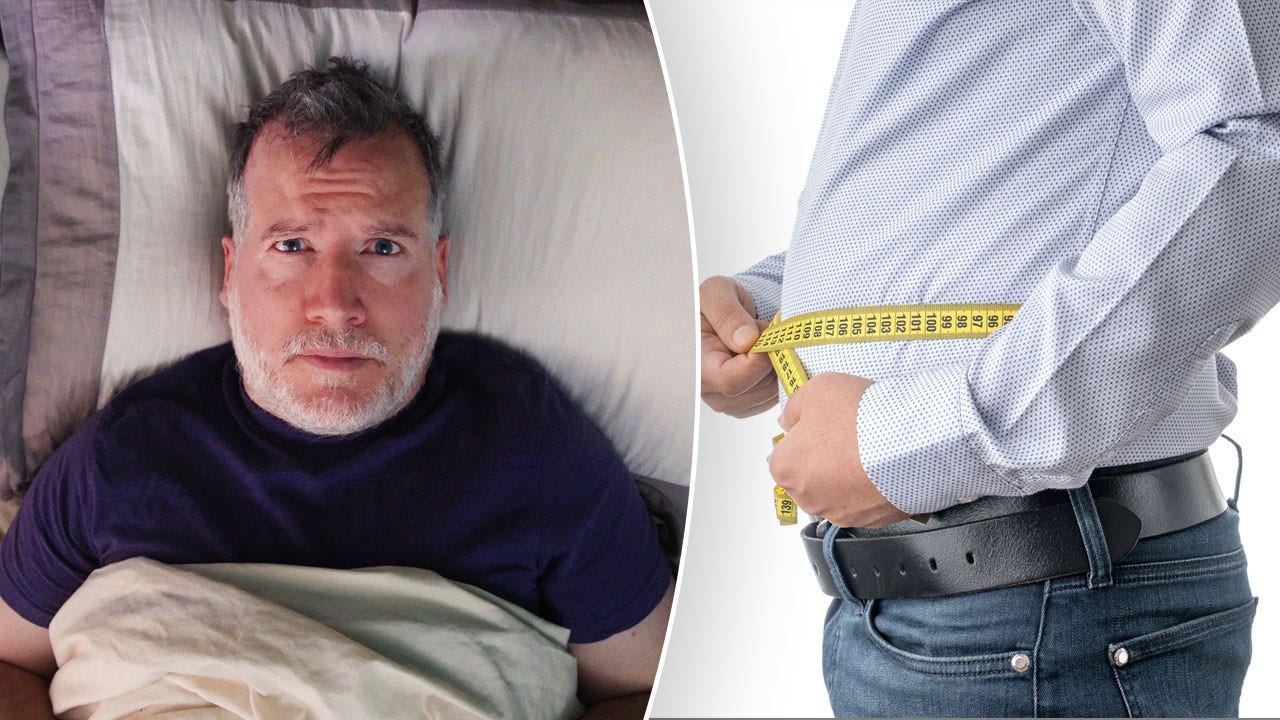
More than a third of adults fail to get the recommended seven to eight hours of sleep each night — and the scarcity of shuteye can have a surprising effect.
Lack of sleep can lead to what some experts refer to as a “silent epidemic” — a condition called non-alcoholic fatty liver disease (NAFLD), which affects more than one in four American adults, according to the American Heart Association.
What is non-alcoholic fatty liver disease (NAFLD)?
As its name implies, NAFLD is marked by the presence of fat in the liver.
SLEEP DISORDERS AND SUICIDE: A MENTAL HEALTH EXPERT REVEALS THE CONCERNING LINK
The primary cause is weight gain, along with metabolic risk factors such as type 2 diabetes, high blood pressure, high triglycerides and obstructive sleep apnea, according to Ibrahim Hanouneh, a gastroenterologist with MNGI Digestive Health in Minnesota.
Lack of sleep can lead to what some experts refer to as a “silent epidemic” — a condition called non-alcoholic fatty liver disease (NAFLD), which affects more than one in four American adults. (iStock)
“Heavy alcohol consumption can also lead to fatty liver, but NAFL refers to fatty liver that occurs in the setting of metabolic syndrome and weight gain in the absence of heavy alcohol consumption — hence the name ‘non-alcoholic,’” Hanouneh told Fox News Digital.
The condition is also known as MASLD (metabolic dysfunction associated steatotic liver disease) to reflect the association between fatty liver and metabolic syndrome.
IMPROVE YOUR SLEEP BY OPTIMIZING 6 BIOMARKERS: ‘INTEGRAL TO HEALTH’
A family history of fatty liver can also increase the risk, noted Hanouneh, who is also co-author of the book “Regenerative Health: Discover Your Metabolic Type and Renew Your Liver for Life.”
NAFL is known as the “silent epidemic” because it often has no symptoms.
“In some studies, fatty liver has affected 25% to 33% of the general population — almost one out of four individuals — but the vast majority of individuals have no symptoms at all, particularly in the early stages,” said Hanouneh.
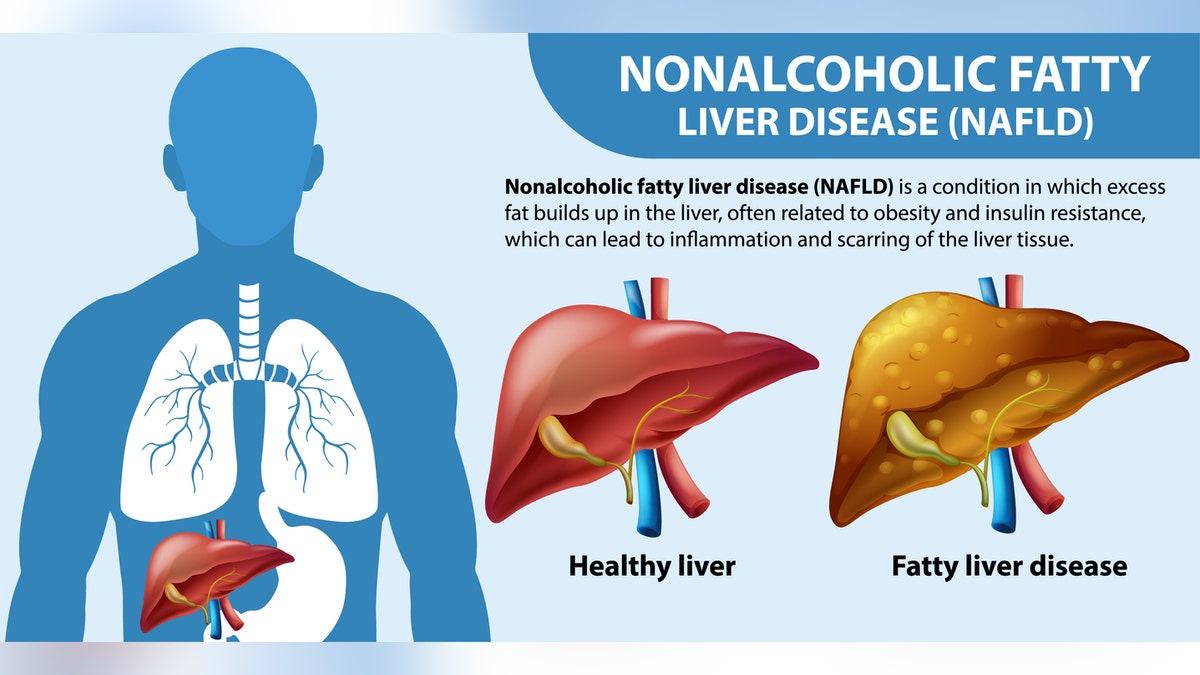
The primary cause of NAFLD is weight gain, along with metabolic risk factors such as type 2 diabetes, high blood pressure, high triglycerides and obstructive sleep apnea. (iStock)
Some people may have non-specific symptoms, such as fatigue, foggy memory and abdominal pain.
“Generally speaking, fatty liver disease does not cause major symptoms until it is too late — for example, when the patient has already developed cirrhosis or liver cancer,” Hanouneh said.
Fatty liver disease is associated with an increased risk of liver cirrhosis and liver cancer.
“The vast majority of individuals have no symptoms at all, particularly in the early stages.”
“NAFLD has become the leading indication of liver transplantation and the leading cause of liver cancer in the Western world,” noted Hanouneh.
Patients with this disease are also at an increased risk of cardiovascular events, such as heart attacks and strokes, he warned.
“Some studies also suggest that patients with NAFL are at an increased risk of getting type 2 diabetes,” he added.
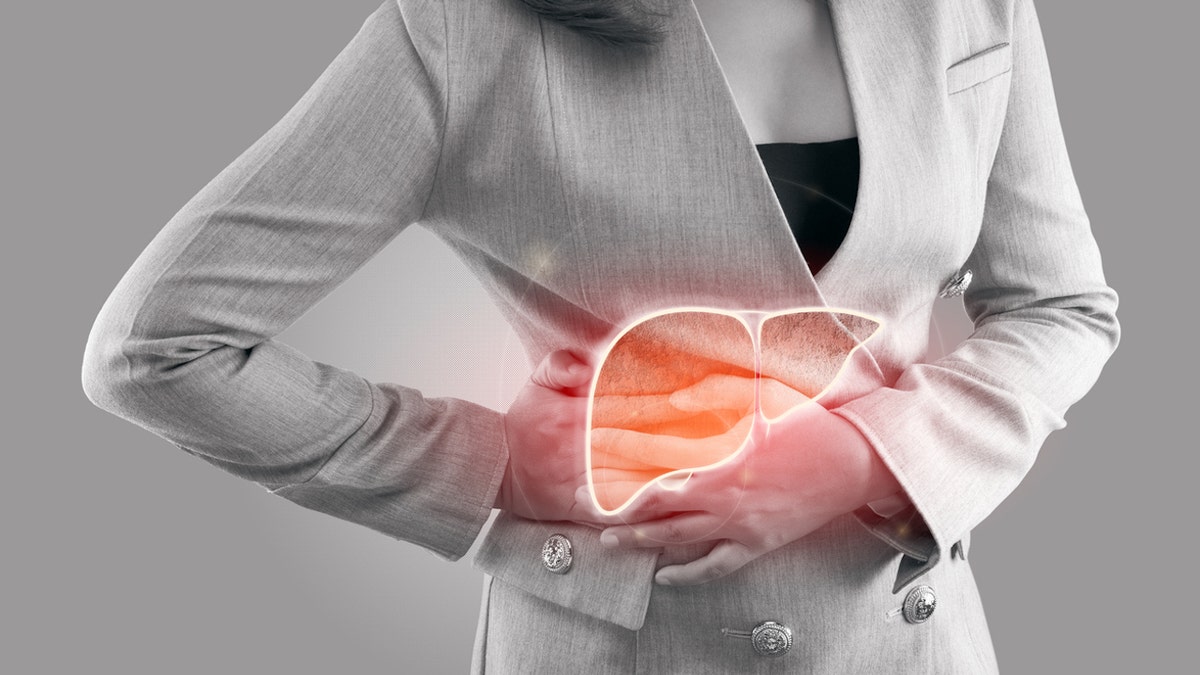
Patients with this disease are also at an increased risk of cardiovascular events, such as heart attacks and strokes, a doctor warned. (iStock)
Not all people with NAFLD experience liver damage. Nonalcoholic steatohepatitis (NASH), the more severe form, leads to swelling or inflammation of the liver and damage to liver cells, according to the American Liver Foundation’s website.
This can ultimately lead to fibrosis, or scarring, of the liver.
Link between sleep and NAFLD
Lack of high-quality sleep has been linked to weight gain, an increase in hunger and adverse blood sugar control in multiple studies, according to Kristin Kirkpatrick, a registered dietitian at Cleveland Clinic and co-author of “Regenerative Health.”
“Insulin resistance is a major risk factor for abnormal amounts of fat in the liver,” said Kirkpatrick.
PITTSBURGH BOY, 10, NEEDS SECOND LIVER TRANSPLANT TO SAVE HIS LIFE: ‘ONLY POSSIBLE THROUGH LOVE’
The risk is particularly high for postmenopausal women, she noted. One study found that chronic short sleep duration led to a 20% increase in insulin levels among that group, compared to 15% overall.
“The stress on the body caused by a lack of sleep can cause adverse metabolic changes that ultimately may lead to NAFLD,” Kirkpatrick said.

Lack of high-quality sleep has been linked to weight gain, an increase in hunger and adverse blood sugar control, studies have shown. (iStock)
The expert also cited a new study in JAMA (the Journal of the American Medical Association) showing that short sleep duration increased the risk for type 2 diabetes.
“Though some risks could be offset by a healthy diet, a majority could not be reversed by a nutrient-rich dietary pattern,” she said.
ALWAYS FEELING TIRED? EXPERTS SHARE 4 COMMON CAUSES OF DAYTIME FATIGUE
“Type 2 diabetics have a significant increase in risk of developing NAFLD.”
Maintaining consistent sleeping hours may help with weight management, Kirkpatrick told Fox News Digital.
“That means going to bed and waking up at the same time on weekdays and weekends.”
Screening, treatment and prevention
Due to the “silent” nature of NAFLD, experts stressed the importance of screening for fatty liver in patients with risk factors — even if there are no signs or symptoms of liver disease.
“NAFLD is a preventable disease,” Hanouneh told Fox News Digital.
“It is also a reversible disease at early stages.”

Imaging tests, such as ultrasounds or CT scans, can visually assess the appearance of the liver. (iStock)
Three main types of tests are used to diagnose the condition, according to JAMA Network.
Blood tests can measure inflammation in the liver.
Imaging tests, such as ultrasounds or CT scans, can visually assess the appearance of the organ.
“NAFLD is a preventable disease — and reversible at early stages.”
There are also some newer tests that measure the amount of fat in the liver — “such as transient elastography, an ultrasound-based test that measures how stiff the liver is” — but they may not be very reliable for diagnosing more advanced liver disease, JAMA Network stated.
For those who have been diagnosed, a low-carbohydrate diet is key to managing fatty liver disease, experts agreed.
CLICK HERE TO SIGN UP FOR OUR HEALTH NEWSLETTER
“Studies suggest that a low-carb diet that leads to weight loss of 5% to 10% can potentially reverse fatty liver disease,” Hanouneh said.
“Also, cut back or abstain from alcohol depending on the degree of fatty liver disease.”
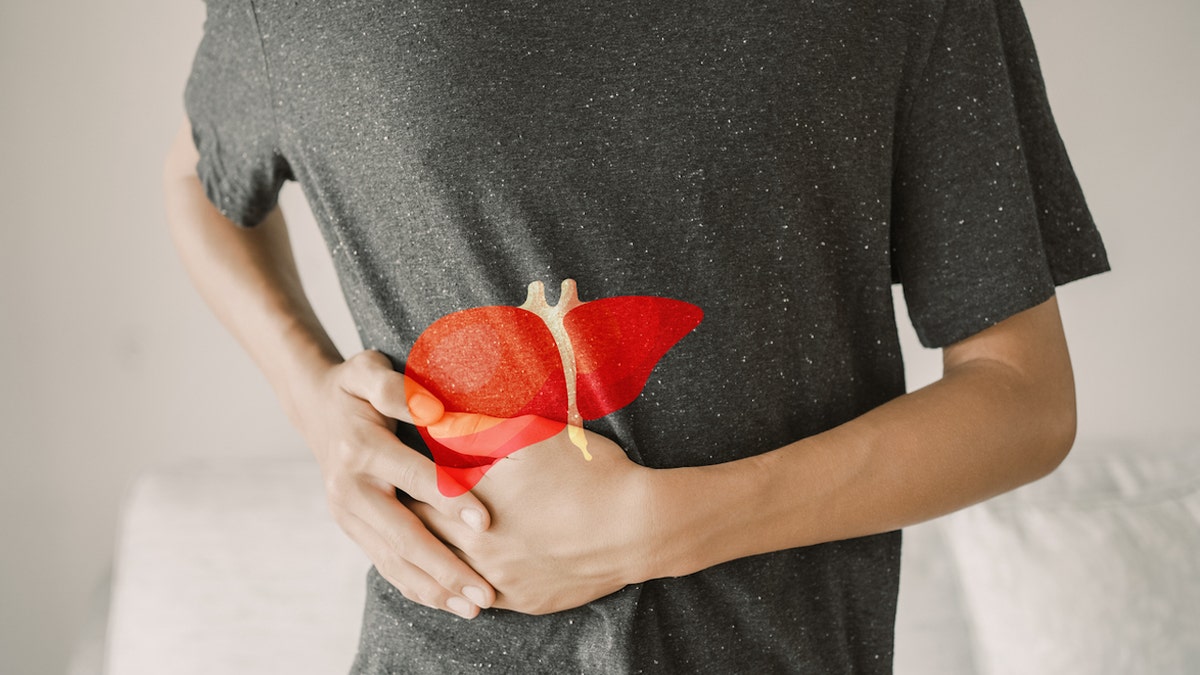
It’s important to follow up with a health care professional to manage metabolic risk factors, doctors advised. (iStock)
It’s also important to follow up with a health care professional to manage metabolic risk factors, he said — particularly type 2 diabetes, which is “crucial in the management of fatty liver disease.”
For people with NAFLD, Hanouneh also recommended incorporating regular exercise, particularly interval training, three times a week.
Coffee has also shown potential benefits for fatty liver.
“I typically recommend one to two cups of black coffee a day if possible,” Hanouneh said.
For more Health articles, visit foxnews.com/health

Health
Highest Paying Work-From-Home Jobs: 5 Ways to Earn | Woman's World

Sign Up
Create a free account to access exclusive content, play games, solve puzzles, test your pop-culture knowledge and receive special offers.
Already have an account? Login
Forgot your password?
Get back to the Sign In
Use left and right arrow keys to navigate between menu items.
Use escape to exit the menu.
Health
“I Lost 130 lbs at Age 53!” — Here's the Protein Combo That Builds Muscle + Boosts Weight Loss
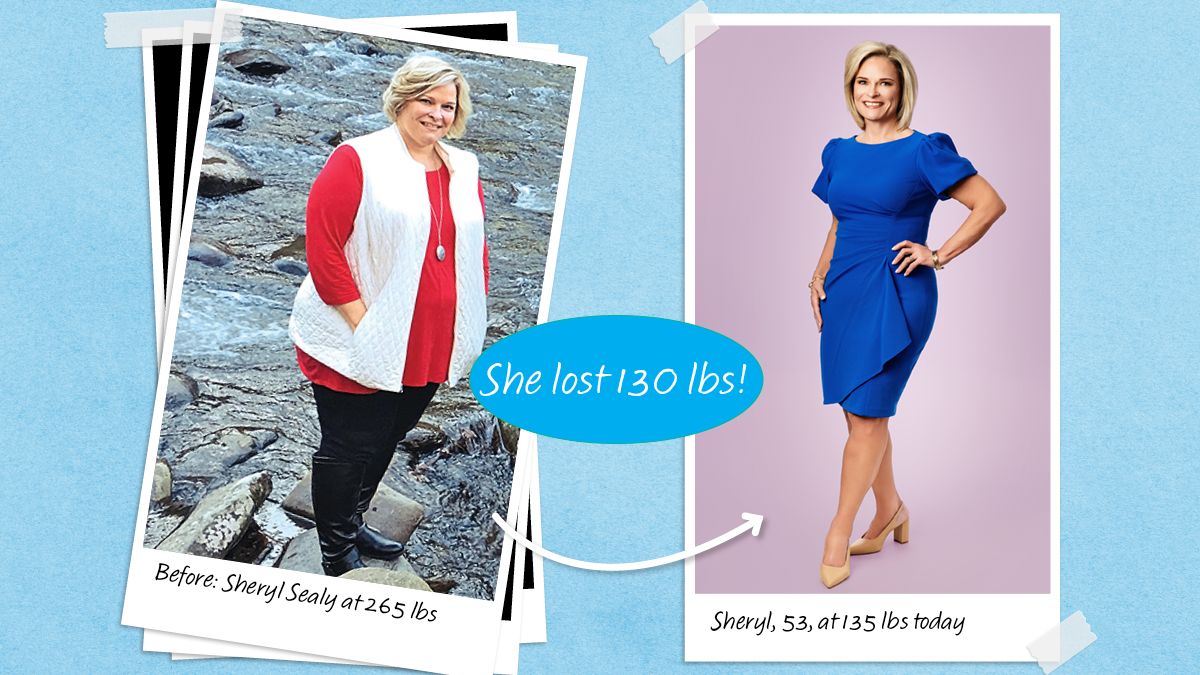
Sign Up
Create a free account to access exclusive content, play games, solve puzzles, test your pop-culture knowledge and receive special offers.
Already have an account? Login
Forgot your password?
Get back to the Sign In
Use left and right arrow keys to navigate between menu items.
Use escape to exit the menu.
Health
Cancer immunity gets a boost from one common nutrient, study finds: ‘Intrigue and optimism’

Vitamin D could be a surprise weapon against cancer, new research suggests.
A study of mice published in the journal Science last week found that eating a diet rich in vitamin D changed the gut microbiome in a way that boosted cancer immunity.
The micronutrient increased levels of the bacterium Bacteroides fragilis, which has been shown to improve cancer immune response.
BE WELL: PREPARE A DINNER RICH IN VITAMIN D FOR GOOD HEALTH
The mice that received vitamin D showed improved responses to cancer immunotherapy and greater immunity to new tumor development, according to researchers at the Francis Crick Institute in London, the National Cancer Institute (NCI) of the U.S. National Institutes of Health (NIH), and Aalborg University in Denmark.
“What we’ve shown here came as a surprise — vitamin D can regulate the gut microbiome to favor a type of bacteria that gives mice better immunity to cancer,” said senior study author Caetano Reis e Sousa, head of the Immunobiology Laboratory at Crick, in a press release.
Dietary vitamin D, found in foods including salmon, increased levels of the bacterium Bacteroides fragilis, which has been shown to improve cancer immune response. (iStock)
“This could one day be important for cancer treatment in humans.”
The researchers aren’t yet sure why vitamin D seems to foster a “good” microbiome.
WHY IMMUNOTHERAPY IS EMERGING AS THE ‘FOURTH PILLAR’ OF CANCER TREATMENTS, EXPERTS SAY
“If we can answer this, we might uncover new ways in which the microbiome influences the immune system, potentially offering exciting possibilities in preventing or treating cancer,” said co-author Evangelos Giampazolias, former postdoctoral researcher at the Crick and now group leader of the Cancer Immunosurveillance Group at the Cancer Research UK Manchester Institute, in the release.

Previous studies have linked vitamin D to improved immunity against cancer. (iStock)
Shama Farooq, M.D., a neuro-oncologist at Hackensack Meridian Neuroscience Institute at Jersey Shore University Medical Center, was not involved in the study but shared his comments on the findings.
“As a doctor who treats patients with cancer, my initial reaction to this study was one of intrigue and optimism,” he told Fox News Digital.
IN POTENTIAL CANCER BREAKTHROUGH, NEWLY FOUND ‘KILL SWITCH’ TRIGGERS DEATH OF CANCER CELLS: ‘ONE-TWO PUNCH’
“The findings suggest a potential link between vitamin D levels, the microbiome and cancer immunity, offering potential new avenues for improving cancer treatment and prevention strategies.”
Continued research into improving the body’s immunity against cancer is “crucial,” Farooq noted.
“Cancer is a complex disease with diverse mechanisms of evasion,” he said.
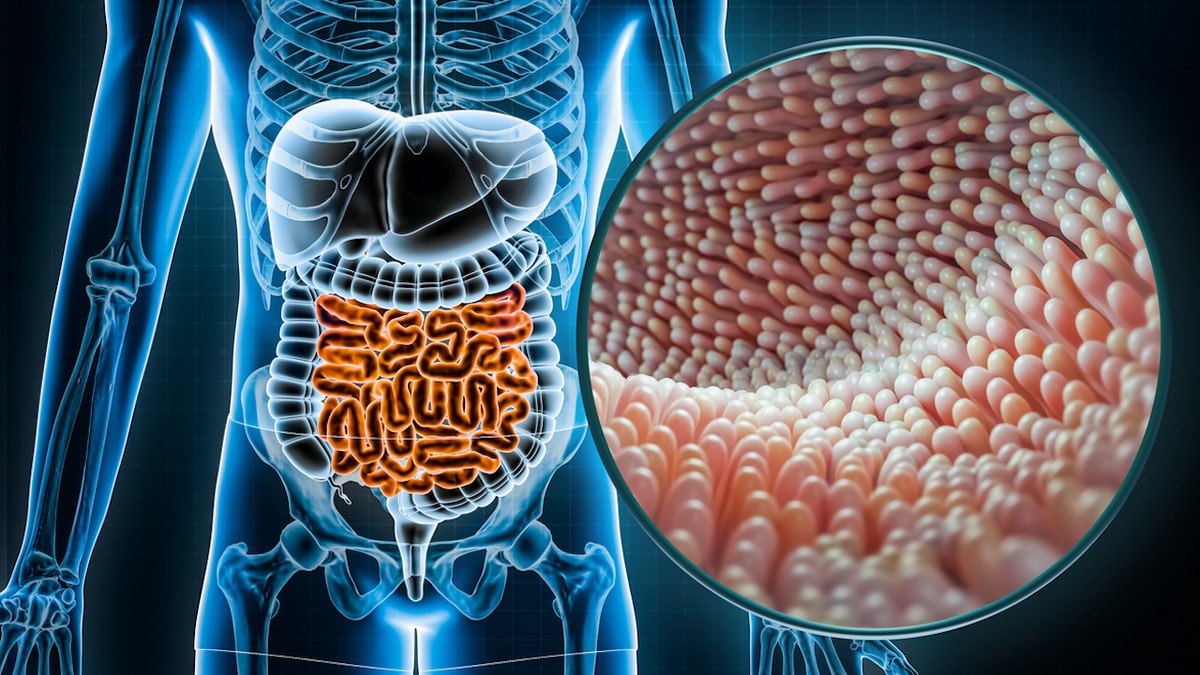
The micronutrient increased levels of the bacterium Bacteroides fragilis, which has been shown to improve cancer immune response. (iStock)
“By exploring new ways to boost the immune system’s ability to recognize and destroy cancer cells, researchers can develop more effective and targeted treatments, ultimately improving patient outcomes and survival rates.”
Based on the findings of this study, Farooq said he recommends people make sure their vitamin D levels are adequate, “as part of a comprehensive approach to potentially lowering their risk of cancer.”
CLICK HERE TO SIGN UP FOR OUR HEALTH NEWSLETTER
“While more research is needed to fully understand the relationship, maintaining optimal levels of vitamin D is generally beneficial for overall health and may contribute to reducing cancer risk,” he added.
Studies in humans are needed to learn more about the link between vitamin D and cancer immunity, the researchers acknowledged.
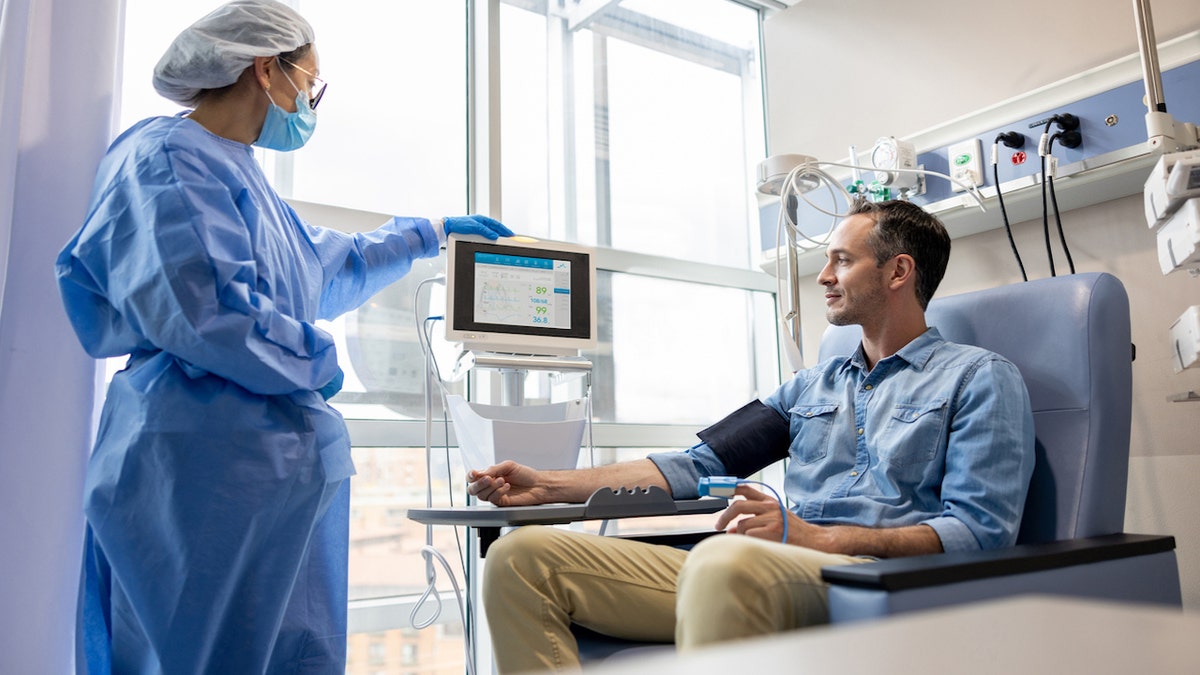
Vitamin D has been linked to improved responses to cancer immunotherapy and greater immunity to new tumor development. (iStock)
“More work is needed before we can conclusively say that correcting a vitamin D deficiency has benefits for cancer prevention or treatment,” said Sousa.
Farooq echoed the need for more research.
“Moving forward, I would like to see further research delve deeper into the mechanisms underlying the interaction between Vitamin D, the microbiome and cancer immunity,” he said.
Fox News Digital reached out to the study researchers for comment.
For more Health articles, visit www.foxnews.com/health.
-

 World1 week ago
World1 week agoShipping firms plead for UN help amid escalating Middle East conflict
-

 Politics1 week ago
Politics1 week agoICE chief says this foreign adversary isn’t taking back its illegal immigrants
-

 Politics1 week ago
Politics1 week ago'Nothing more backwards' than US funding Ukraine border security but not our own, conservatives say
-

 News1 week ago
News1 week agoThe San Francisco Zoo will receive a pair of pandas from China
-

 World1 week ago
World1 week agoTwo Mexican mayoral contenders found dead on same day
-

 World1 week ago
World1 week agoBrussels, my love? The EU single market is not sexy enough for voters
-

 Politics1 week ago
Politics1 week agoRepublican aims to break decades long Senate election losing streak in this blue state
-

 World1 week ago
World1 week agoEU sanctions extremist Israeli settlers over violence in the West Bank















